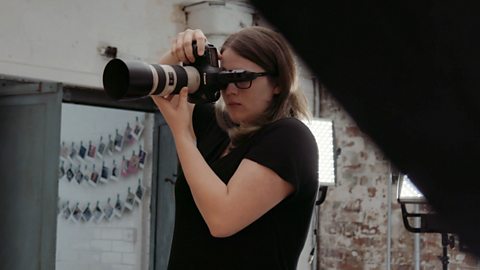Meet Taylor, 18, from Leeds, and find out more about her life as a freelance filmmaker. Part of our Bitesize world of work series.
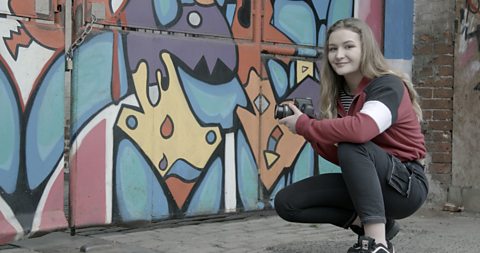
There is a path for you and you don’t have to take the traditional route to get there – I didn’t.
How would you describe your job?
I work as a freelancer which means I work for myself and choose the work I do. I am commissioned (or booked) by different clients to film events, music videos, and fundraising videos for them.
I also make documentaries about social and cultural issues in Leeds.
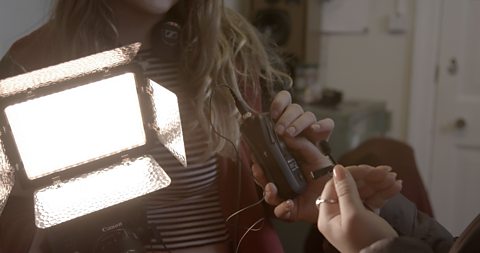
Can you explain the process of filmmaking?
When I'm filming, the first thing I do is prepare my camera bag. Depending on what I'm doing that day, I need different equipment.
After I get to the filming location, I meet the team I'll be working with that day. There's a big team meeting called a team brief. This is where we discuss what's going to happen and what we need to do before the end of the day. Then the filming starts!
Once we have all the footage we need, I edit the video at home. I have to pay close attention to what the client has asked for so we're both happy with the finished result.

Did you always know you wanted to be a filmmaker?
I wasn't always interested in filmmaking – at first I wanted to be a drummer, then a music producer! It was when I wanted to make my own music video that I realised how much I enjoyed filmmaking. It was more of a hobby until I realised I could do it as a real job.
I went to two different secondary schools and nine different behavioural schools. The last school was the MAP (Music & Arts Production) Charity in Leeds who help young people get qualifications in creative media. I did my Creative Media BTEC at Level 1, 2 and 3. I didn't pass any of my GCSEs but I now have a place at university to study Visual Communications.
It was very difficult getting started as a freelancer, but I’ve come out of the other end of it and I’m still going!

Top tips
- If you haven't found your passion yet, it only takes one small step to find it
- You don't have to take the traditional route to get to where you want to be
- Achieve things for yourself, not to please anyone else
- Set yourself little goals and you'll achieve them.

A similar role to a filmmaker is a TV or film director. TV and film directors lead the creative and technical production for cinema and television.
What to expect if you want to be a TV or film director
- TV or film director average salary: variable
- TV or film director typical working hours: 39 to 41 hours per week
What qualifications do you need to be a TV or film director?
You could get into this role via a university course or a college course such as a Level 3 Diploma or a T-level in Media, Broadcast and Production (England-only, from Sept 2023). You can also work towards the role, produce and release your own films or do specialist courses run by private training providers.
Sources: LMI for All, National Careers Service,
This information is a guide and is constantly changing. Please check the for the latest information and all the qualifications needed and the for more on T-levels.
For careers advice in all parts of the UK visit: , , and .

Find work experience placements with Workfinder.
Tips and advice
Help with interviews, writing a CV and all things work experience related.

Toby: director of photography. video
Toby's a director of photography for a film production company.
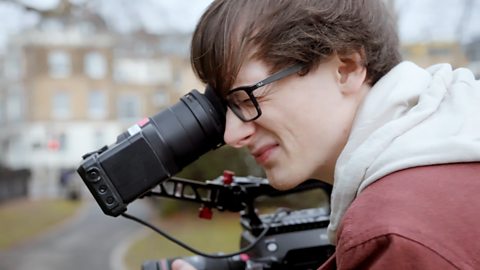
Isaac: filmmaker and vlogger. video
Isaac makes films and vlogs about his life, editing with his feet!
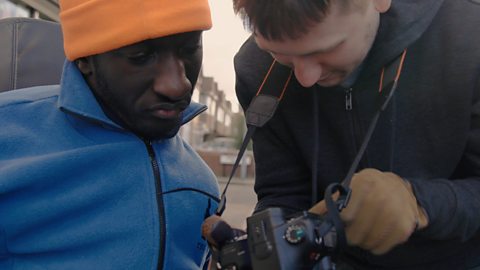
Corinne: photographer. video
Corinne runs her own photography business.
